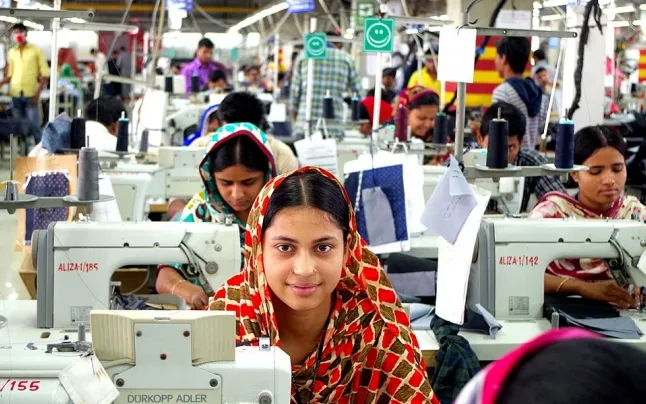An almost unlimited choice in latest fashion trends just one click away from your home for almost
laughable prices and a strong digital strategy. This is what
Shein is all about, the leading
fast-fashion company that has been thriving ever since the pandemic and which is valued at
100 billion dollars, more than its competitors
H&M and
Inditex together. All this comes at the cost, as was to be expected, of its workers.
Working days of 75 hours and no contracts or safety measures. Public Eye, a Swiss NGO working for solidarity development, has published a report that “dives into the sinuous paths in Guangzhou, in southern China”, where thousands of workers manufacture these garments.
Shein’s village
The investigation took the NGO to Nuncan Village, with dozens on small workshops that work almost exclusively to manufacture garments for Shein; this isn’t the norm, since workshops usually manufacture goods for local brands and also because large fashion brands tend to look for large and well-regulated suppliers.
One of the larger workshops has no emergency exits, bags full of garments block the way out and windows on the upper floors are barred. “I don’t even want to imagine what would happen if a fire breaks out” says the Chinese researcher who was hired by the NGO and who works for an organisation defending labour rights, the name of whom hasn’t been disclosed for fear of retaliation by the Chinese government.
Exhausting workdays
The female workers interviewed by the researcher all agree on working hours. The work in the morning from 8.00 to 12.00; in the afternoon from 13.30 to 17.45, and in the evening from 19.00 to 22.00 or 23.00 and have one day off per month.
This means more than 75 hours of work per week, which is illegal according to Chinese law and also breaches Shein’s supplier protocol. Extra working time is never paid.
The researcher mentions this is not unusual, as stated in the report. Workers in the fashion industry are usually migrant women who travel to the city provinces alone to work as many hours as they can to earn a better salary than in villages.
44 Euro cents to manufacture a dress
In one of the garment factories, the researcher estimated that the price a worker is paid to manufacture a simple polyester dress with blue flowers printed on it that can be purchased on Shein’s website at a 50% discount for little more than 5 Euro. At the most, workers will be paid 44 Euro cents per garment.
They are paid by item depending on its complexity. One of the women interviewed affirms that the salary per piece is considerably lower than in other workshops where she had worked before, adding that the quality requirements aren’t very strict.
None of those interviewed has a work contract nor do they contribute to Social Security. In small companies this is not uncommon, but for companies with more than 100 workers, as is the case for the workers interviewed, the law in Chine requires having a contract.
Monthly salaries on good months, however, can reach 1,415 Euro and one third of that on bad months. This is above the monthly decent salary in the country, but for a double day’s work.







Add new comment